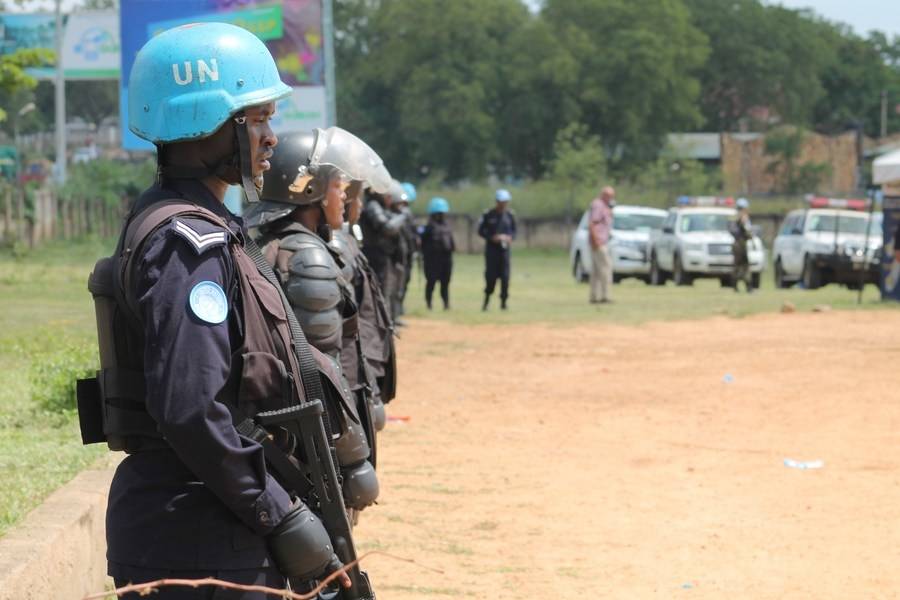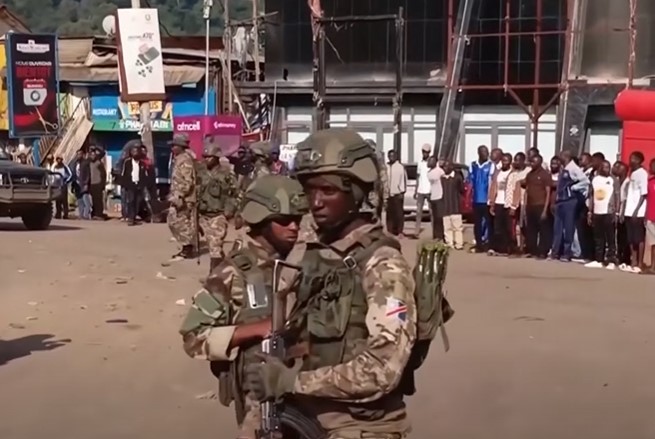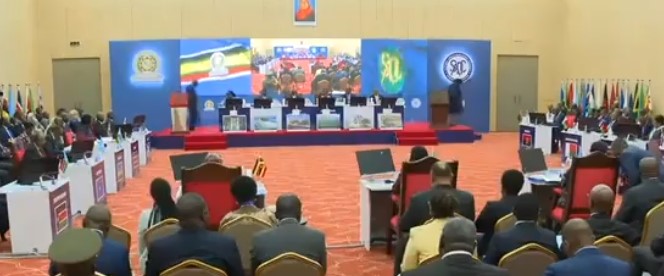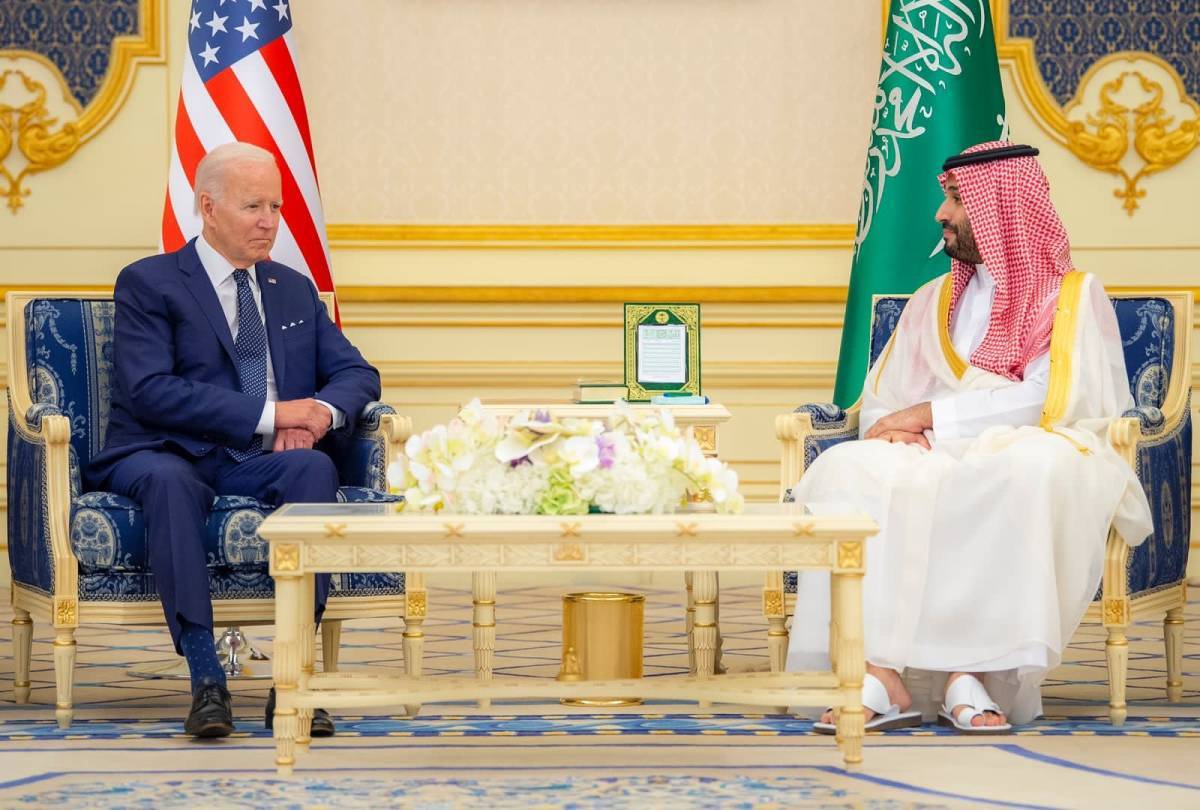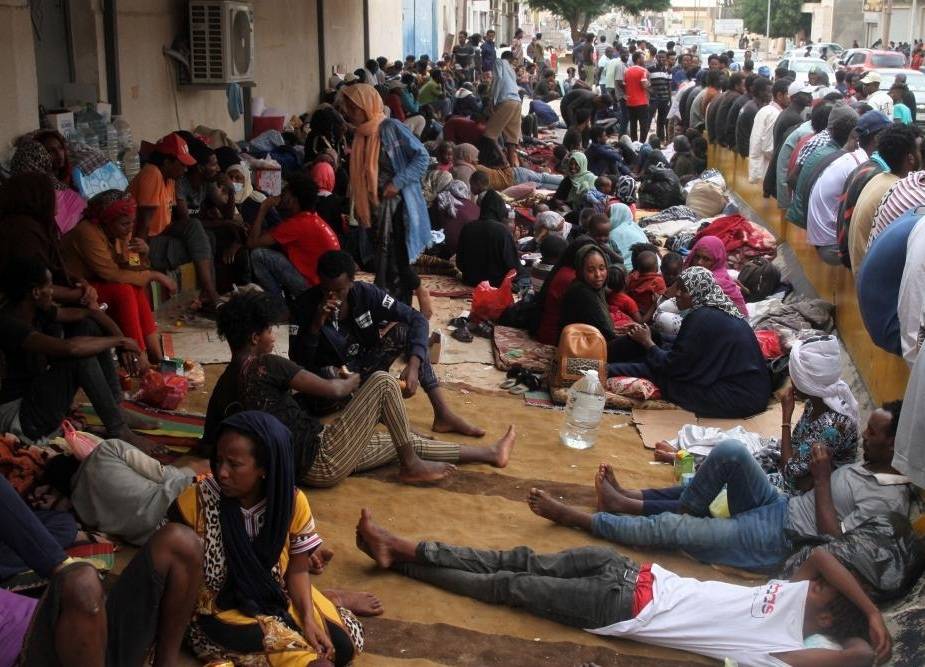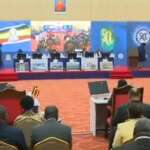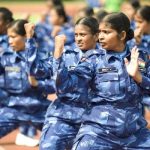UN Secretary General Antonio Guterres’s Deputy Spokesperson Farhan Haq said that at the Butembo base “violent attackers snatched weapons from Congolese police and fired upon our uniformed personnel”, killing three persons with the UN mission, reports Arul Louis
Two Indian police personnel in the UN peacekeeping operation in the Democratic Republic of Congo (DRC) were killed on Tuesday during attacks on peacekeepers by local people.
India’s External Affairs Minister S. Jaishankar tweeted that the two were from the Border Security Force and demanded that the perpetrators be brought to justice.
UN Secretary General Antonio Guterres’s Deputy Spokesperson Farhan Haq said that at the Butembo base “violent attackers snatched weapons from Congolese police and fired upon our uniformed personnel”, killing three persons with the UN mission.
He said that a peacekeeper had also been killed in the rioting at Butembo in the DRC, but did not disclose that victim’s nationality.
Guterres sent his condolences to the Indian government on the death of the two Indian police personnel, he said.
Haq said that Mobs threw stones and petrol bombs at UN facilities and broke into bases, looting, vandalising and setting them on fire in Eastern DRC.
At the Security Council on Tuesday afternoon, India will be raising the attacks on UN personnel in the DRC, diplomatic sources said.
There are 139 police and 1,888 military personnel from India in the DRC mission known by the French initials MONUSCO for UN Organisation Stabilisation Mission in the DRC.
MONUSCO started operations in the DRC in 2010 from an earlier operation set up in 1999 to stabilise the country wracked by rebel attacks.
Haq said that the situation in the DRC aceis very volatile and reinforcements are being mobilised”.
“Our quick reaction forces are on high alert and have been advised to exercise maximum restraint, using tear gas to disperse protestors and only firing warning shots when UN personnel or property are under attack,” he said.
Tuesday was the second day of protests against the UN in Eastern DRC.
Haq blamed “hostile remarks and threats made by individuals and groups against the UN, particularly on social media” for the attacks by hundreds of assailants on UN bases in Goma as well as other parts of North Kivu province.
MONUSCO staff residences were targeted in four incidents and staff have been relocated to camps, he added.
The protests were reportedly called by a section of the youth wing of the ruling, the UDPS.
They were complaining about the UN’s inability to stop the attacks by rebel groups on civilians and the government.
There are several rebel groups operating in the DRC, chief among them is the M23 organisation, which has targeted UN peacekeepers.
There were reports of several casualties, including civilians, in the protests against the UN in the DRC that entered its second day on Tuesday.
DRC Government Spokesperson Patrick Muyaya tweeted on Tuesday that at least five people were killed in Goma during the protests.
“Warning shots (were fired) to disperse the demonstrators and prevent any attack on the @MONUSCO base and installations”, he said.
Several news reports from the DRC said that UN personnel had opened fire on the demonstrators.
In April, a Nepali peacekeeper was killed in the DRC in an attack by the militia of the Cooperative pour le developpement du Congo (CODECO).
Six Pakistani peacekeepers were killed when a helicopter was shot down in an area where the M23 was active.
In Butembo at least seven civilians were killed and an unknown number wounded, said the city’s police chief Paul Ngoma.
“Obviously if there’s any responsibility by U.N. forces for any of the injuries, or any of the deaths, we will follow up on that,” Haq said.
U.N. forces were advised to use tear gas to disperse protesters and only fire warning shots if needed, he said.
The protests were called by a faction of the ruling party’s youth wing, which has demanded the U.N. mission withdraw over what it describes as its ineffectiveness.
Resurgent clashes between local troops and the M23 rebel group in eastern Congo in recent months have displaced thousands. Attacks by militants linked to Islamic State have also continued despite a year-long state of emergency and joint operations against them by the Congolese and Ugandan armies.
“We have been doing our utmost, not just for years, but really for decades to try to bring stability to Eastern Congo,” said Haq, adding that U.N. peacekeeping chief Jean-Pierre Lacroix is expected to travel to Congo as soon as he can.
MONUSCO took over from an earlier U.N. operation in 2010. MONUSCO had more than 12,000 troops and 1,600 police deployed as of November 2021, and has been gradually withdrawing for years.
Protesters also stormed the houses of U.N. workers in Goma, spurring the mission to relocate its staff to camps. A Reuters reporter saw staff being evacuated in a convoy with army escort.
India’s foreign minister said two of the peacekeepers who died were Indian. Ngoma said the third one was Moroccan.
The U.N. Security Council was briefed on the situation behind closed doors on Tuesday, diplomats said.
ALSO READ-UNRWA calls for int’l support as it faces fiscal crisis


